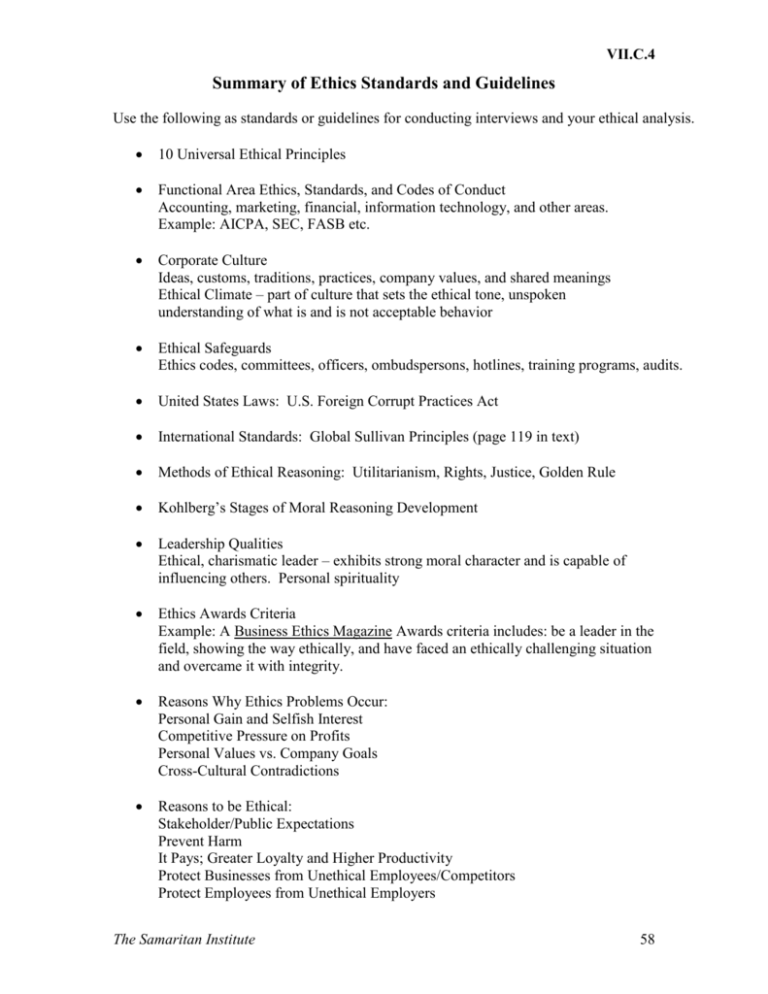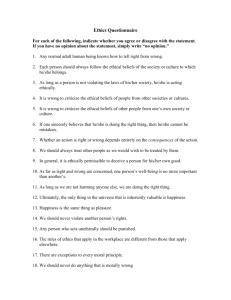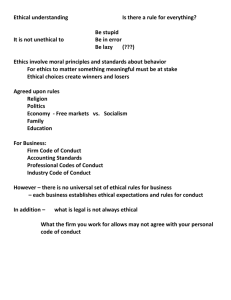Summary of Standards - Samaritan Institute
advertisement

VII.C.4 Summary of Ethics Standards and Guidelines Use the following as standards or guidelines for conducting interviews and your ethical analysis. 10 Universal Ethical Principles Functional Area Ethics, Standards, and Codes of Conduct Accounting, marketing, financial, information technology, and other areas. Example: AICPA, SEC, FASB etc. Corporate Culture Ideas, customs, traditions, practices, company values, and shared meanings Ethical Climate – part of culture that sets the ethical tone, unspoken understanding of what is and is not acceptable behavior Ethical Safeguards Ethics codes, committees, officers, ombudspersons, hotlines, training programs, audits. United States Laws: U.S. Foreign Corrupt Practices Act International Standards: Global Sullivan Principles (page 119 in text) Methods of Ethical Reasoning: Utilitarianism, Rights, Justice, Golden Rule Kohlberg’s Stages of Moral Reasoning Development Leadership Qualities Ethical, charismatic leader – exhibits strong moral character and is capable of influencing others. Personal spirituality Ethics Awards Criteria Example: A Business Ethics Magazine Awards criteria includes: be a leader in the field, showing the way ethically, and have faced an ethically challenging situation and overcame it with integrity. Reasons Why Ethics Problems Occur: Personal Gain and Selfish Interest Competitive Pressure on Profits Personal Values vs. Company Goals Cross-Cultural Contradictions Reasons to be Ethical: Stakeholder/Public Expectations Prevent Harm It Pays; Greater Loyalty and Higher Productivity Protect Businesses from Unethical Employees/Competitors Protect Employees from Unethical Employers The Samaritan Institute 58








